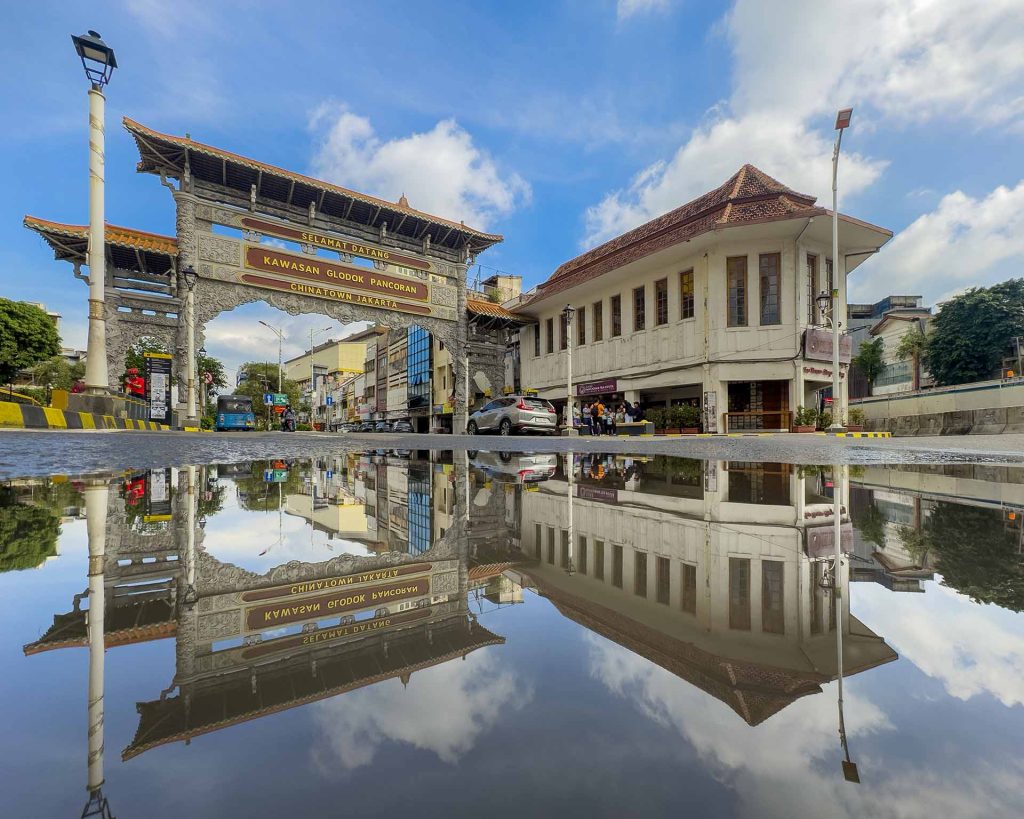Glodok, located in the Taman Sari district of West Jakarta, is Indonesia’s largest and oldest Chinatown, with origins tracing back to the 17th century during Dutch colonial rule. Established in November 1740 by the Dutch East Indies Company as a designated residential area for ethnic Chinese, Glodok has since evolved into a vibrant hub of commerce, culture, and culinary delights. Glodok’s history is marked by significant events, including the tragic 1740 Batavia massacre, where thousands of Chinese residents were killed. Despite such challenges, the community rebuilt and thrived, preserving its rich heritage and traditions.
Glodok is home to several historic temples and religious sites that reflect its multicultural fabric:
-
Dharma Bhakti Temple (Vihara Dharma Bhakti): Established in 1650, it’s the oldest Chinese temple in Jakarta, serving as a spiritual center for the community.
-
Dharma Sakti Temple, Hui Tek Bio, and Dharma Jaya Toasebio: Other notable temples that contribute to the area’s religious diversity.
-
Santa Maria de Fatima Catholic Church: A unique church built in Chinese architectural style, symbolizing the blend of cultures in Glodok.
Glodok is a bustling commercial area, especially known for electronics and traditional goods:
-
Shopping Centers: Popular malls include Glodok Plaza, Harco Glodok, and Lindeteves Trade Center, offering a wide range of products from electronics to household items.
-
Traditional Markets: Stalls selling Chinese herbs, traditional medicines, and various other goods line the streets, providing a rich shopping experience.
-
Location: Glodok is situated in West Jakarta and is easily accessible via public transportation, including TransJakarta buses and the KRL Commuterline, with nearby stations like Mangga Besar and Jayakarta. Wikipedia
-
Best Time to Visit: Mornings are ideal to experience the vibrant market life and enjoy the local cuisine.
-
Cultural Etiquette: When visiting temples, dress modestly and be respectful of worshippers.






